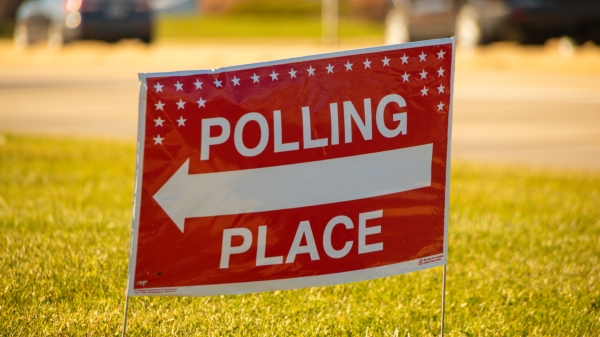Alabama Secretary of State Wes Allen celebrated the final passage of a bill that codifies the usage of the Alabama Voter Integrity Database.
Senate Bill 142, sponsored by state Sen. Wes Kitchens, R-Arab, also removes the Electronic Registration Information Center, which Allen withdrew Alabama from early in his tenure, as an approved source of voter data in Alabama.
The bill, currently awaiting enactment by Gov. Kay Ivey, codifies AVID’s use by the Secretary of State in order to manage Alabama’s voter rolls, as well as from which sources the database’s voter registration information may be obtained.
In a Thursday press release, Allen showed support for SB142, as well as Kitchens and state Rep. Bryan Brinyark, R-Tuscaloosa, who carried the bill’s House counterpart, House Bill 479.
“Voter file maintenance is the foundation of election integrity. Because of this important legislation, we can now be assured that Alabama’s voter file maintenance efforts will remain robust in the future,” Allen said. “The passage of SB142 is a victory for each and every Alabamian as they head to the ballot box.”
SB142 mandates that the board of registrars, “as directed by the Secretary of State,” is responsible for removing an individual determined to be improperly registered to vote by a majority vote of the board.
The bill also states that the Secretary of State is to be responsible for “directly conducting regular state voter registration list maintenance programs to ensure database integrity” through AVID.
The bill amends Alabama State Code Section 17-4-30, removing ERIC as an appropriate source that the board of registrars or the Secretary of State’s office may use to determine voters who have changed their address. It allows the continued usage of the United States Postal Service’s National Change of Address database or a National Voter Registration Act-designated agency.
ERIC, a non-partisan nonprofit which helps its 24 member states cross-check and maintain their voter files, has not been used as a source of voter data in Alabama since Allen withdrew the state’s membership in 2023, and founded AVID later in the year.
Allen has repeatedly championed his voter file maintenance system as having “cleaned up” the state’s voter rolls.
“Through AVID, we have identified over one million voters that were due to be removed from Alabama’s voter file or needed to update their information. This would not have been possible without the hard work and due diligence of our Boards of Registrars or under ERIC,” Allen said.
Allen’s comments alleging AVID’s superiority to ERIC have drawn criticism from his predecessor, former Alabama Secretary of State John Merrill, who in an April op-ed, accused Allen of presenting an inflated representation of the number of individuals removed from Alabama’s voter rolls during his tenure.
Merrill also argued that data sources employed by AVID—including that from the Alabama Law Enforcement Agency, the National Change of Address file, the Social Security Death Index and agreements with other states—were already in use, alongside ERIC, during his administration.
“What’s been presented as a new innovation is, in large part, a repackaging of longstanding procedures,” Merrill wrote of AVID.
SB142 also codifies the Social Security Death Index and state-to-state voter list data as appropriate data sources to identify individuals registered to vote in Alabama and in other states.
Allen claimed SB142 will help election officials prevent non-citizens from taking part in U.S. elections.
“Only U.S. citizens should be voting in our elections. This is common-sense legislation,” Allen said.
SB142 codifies the right of the Secretary of State’s office to utilize U.S. Department of Homeland Security Citizenship and Immigration Services data “to identify individuals who are registered to vote in Alabama but are ineligible to vote because they are noncitizens.”
Last year, Allen’s office’s use of DHS citizenship data in an attempt to remove over 3,000 Alabamians who had at one time been given non-citizen identification numbers by the department resulted in a lawsuit against the Secretary of State, eventually joined by the U.S. Department of Justice.
Roughly 2,000 of the individuals targeted by the purge were later found to be naturalized U.S. citizens eligible to vote in the state.
The purge was halted by a Birmingham federal judge for violating the National Voter Registration Act by taking place less than 90 days before the 2024 U.S. Presidential Election. The suit was dismissed this March.
SB142 also codifies the usage of driver license data and non-driver ID data from ALEA to identify individuals “who have registered to vote in Alabama and then applied for a foreign national driver license or nondriver identification card,” or who have moved and applied for an ID out of state.
ALEA was recently given the responsibility of developing IDs that designate foreign nationals, including their authorized period of stay, with the passage of SB158, sponsored by Sen. Will Barfoot, R-Pike Road, and signed by Ivey on Monday.
Allen announced in February that he will be seeking the Republican nomination for lieutenant governor in 2026.



















































